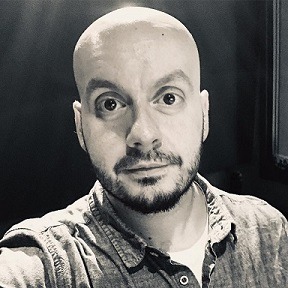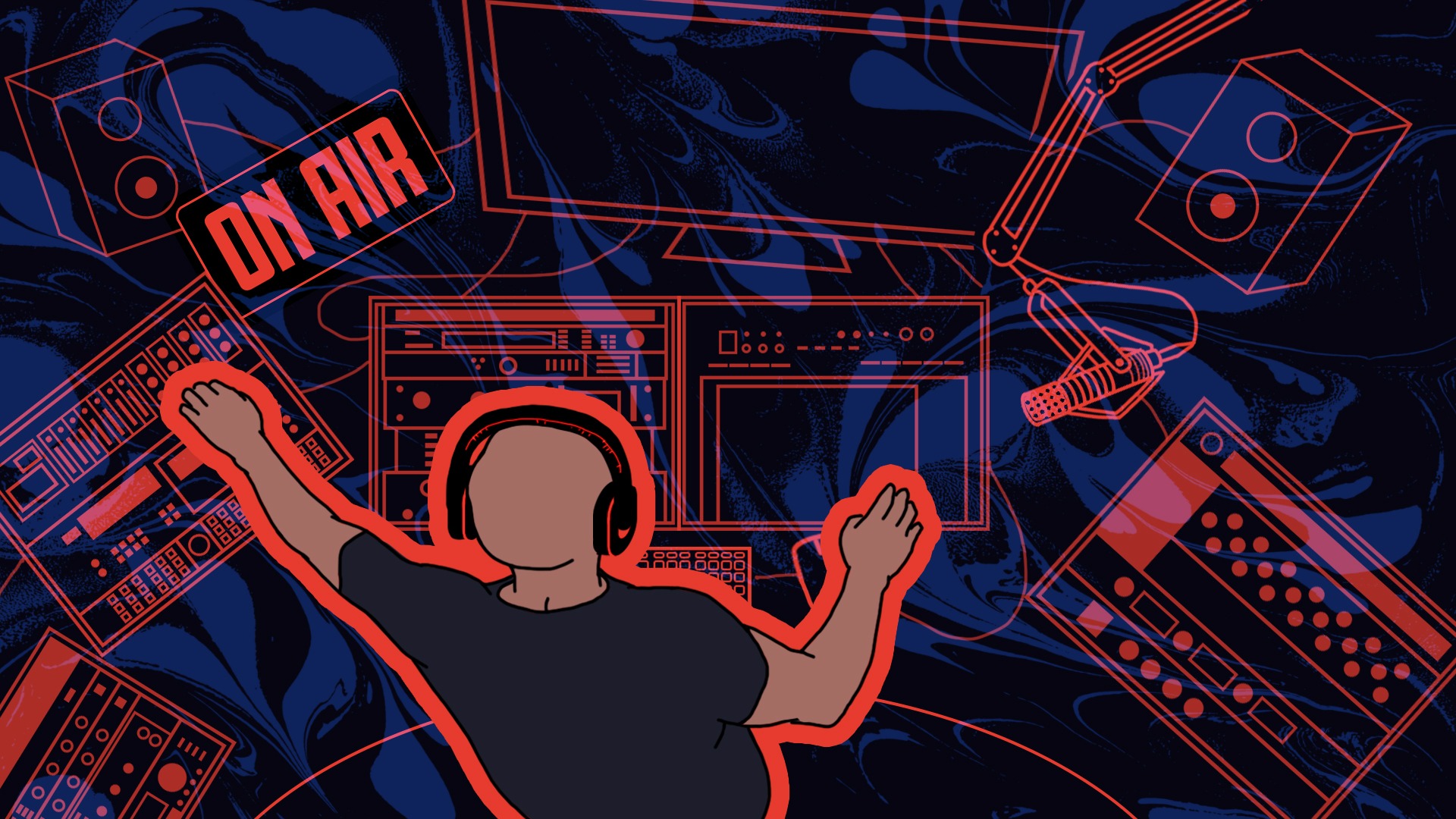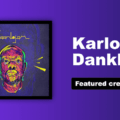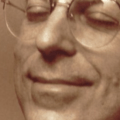Diving into the career of Anthony Conte, it’s plain to see he has always had a passion for audio. His curiosity has taken him far – from his early days of making personalized birthday cassettes for friends, to working as a radio producer for CHFI, to his latest chapter as Production Manager at Rogers Sports & Media. What are the secrets to this illustrious journey? Anthony agreed to a virtual sit-down with us where we delved into his professional trajectory and his studies in audio production. Read on to find out how Anthony established key connections in the radio world, and how he landed his dream job.
RAC: Tell us a bit about your backstory, how you discovered your love for audio production, the world of radio, and what led you to pursue it professionally!
Anthony: Before I could even speak, I carried a boombox with me wherever I went. Music was always a passion of mine. I knew from a young age – when I would record my own sound effects on cassette – that I loved the world of audio. I always had to have the radio on. I can still recall and sing jingles from the ’80s and ’90s that were featured on stations in Toronto.
In high school, I would make audio birthday cassette messages for friends, followed by a compilation of their favourite songs. These audio “cards” would include inside jokes from shows, plus commercials and clips that I’d record off of the TV. I’d also use my voice and sound effects to tell a story. I knew then that audio was something that I needed to focus on for life. I later applied to colleges everywhere as the first step towards building my dream career.
RAC: Where did you study to learn your production chops?
Anthony: I attended Canadore College in North Bay, Ontario for their two-year Radio Broadcasting Program. I was there from 2002 to 2004, and was later on the board of directors for the program from 2009 to 2015.
RAC: In your opinion, how important is education when it comes to audio production?
Anthony: Education is vital, in my opinion. It introduces you to the basics and gives you the time that you need to grow. It allows you to experiment with sounds and different techniques. This is your time to make mistakes, to learn, and grow from them. It’s also imperative to surround yourself with people who have the same passion. Collaboration is key; it helps develop interpersonal skills that will benefit you in your career, especially in regard to networking. School opens the door for internships.
RAC: So, CHFI Radio Production and Rogers Production Manager! Can you break down how the opportunity to work with these major companies came about, and what led you there?
Anthony: In college, I was known as “that intern that would drive four hours to work for free”. Some of my internships included Corus Radio Toronto (102.1 The Edge, Q107, and AM 640), a travel and tourism station in North Bay, and internships in promo. I was referred to production director Rob Johnston and got my internship under his direction. Once I graduated from Canadore College in May 2004, I applied to stations across Canada for the next year trying to land a gig in any department. It wasn’t until November 2005 that Rob Johnston started looking for a part-time producer and reached out. It was for a commercial production role. When he contacted me, I remember it felt like I won the lottery. I also took a lead role for an online radio station that was Corus-owned. I oversaw production and music, as well as the on-air talent.
In 2007, I was offered a full-time job at Corus in Edmonton, and I took it! It was a quick eight months, however, as I worked for CTV Globemedia Edmonton, Harvard Broadcasting Edmonton, and – finally – Rogers Radio Toronto. I started off in the commercial production department, which led to an imaging role with Sportsnet 590 The FAN.
Throughout my time at Rogers, I always told my boss and mentor Chris Pottage that I aspired to become a manager. He helped me develop my skills and taught me so much. I strive to lead people like he does.
In 2017, the CHFI imaging position became available, and I knew that I wanted to be at that flagship station. Within my first year at CHFI, that role turned into a national gig. I was one of the production imaging leads for the AC Format.
Finally, in 2021, I accepted my current position of Production Manager at Rogers Sports and Media Ottawa!

RAC: What advice would you share with students who want to pursue production professionally?
Anthony: Never give up! Ask to set up meetings with producers (who can be reached no matter where they are in the world, thanks to modern technology). If you’re in school, ask your teachers to arrange for one of your guest speakers to be a producer from the industry. Ask questions, practice, and be patient. Nothing happens overnight. Use your passion to create compelling personal projects and academic assignments. Send demos to producers so they critique your work. If they get torn apart, that’s a good thing! That means that whoever is listening is taking the time to give sound advice.
No matter how good I thought I was getting, there was room for improvement and there’s still a lot more that I need to learn even today. And I’m excited about that! Sound evolves constantly – grow with it!
RAC: What are some things you wish you knew when you started?
Anthony: I feel that learning more about the industry in general would have helped me out. There was a program in college that taught us how the various departments work together; I realized the importance of that class only once I was in the industry. Also, being able to adapt in an ever-changing field is another big point.
RAC: How did you make your most important industry connections, and what advice would you give students who are struggling to network?
Anthony: When I was in college, I didn’t solely reach out to producers or creative directors. I contacted various people in all departments: program directors, sales, traffic, on-air talent, and more. I wanted to learn all aspects of running a radio station. My advice would be to take the time to send a note. You may not always hear back, but when you do, be sure to ask your questions and show your interest and passion. Take on internships, even outside of academics.

RAC: What are the key soft or hard skills that it takes to make it in radio/broadcasting production?
Anthony: Patience is the most important skill to have in this industry. So is leaving your ego at the door. Helping others when you can is a commendable trait that is frequently recognized in this industry.
You should practice production. Send your work to people in the industry to have them review and critique it. Also, take courses, watch audio production videos, and ask questions!
RAC: What are the best and worst aspects of your job?
Anthony: The best aspect of my job is waking up every day and feeling excited and motivated to collaborate with my incredible colleagues. Creating compelling content that engages with our listeners and clients feels fulfilling.
The worst part of the job is my work-life balance. This is my own fault. I’m so passionate about my role that the days get away from me. Everyone needs a break! It’s not so much a “worst” aspect, but I need to remind myself that I need to take time to recharge and discover more ways to inspire myself, so that I may inspire others.
RAC: What is the big goal for you? Have you already accomplished it, or do you have a dream end goal that you’re working towards?
Anthony: The role of production manager is what I’ve always worked towards. If it evolves beyond that into a regional production manager position, amazing!
I love to encourage and inspire others. I’m excited to work with an incredible team, and to inspire and motivate them. It’s not a position I would ever take for granted.
—Final notes—
Throughout our conversation, Anthony emphasized that patience, practice, and collaboration are all key traits that will help ensure success in the radio and broadcasting field. The willingness to send your work out for feedback and implement the critiques you receive are also vital to heading in the right direction when you’re starting out. Above all else, it is critical to stay out of your own way and not let your ego take the lead. Regardless of where you are in your professional journey, stay curious and stay creative!
Text written by Maya Malkin
Illustration by Yihong Guo





















